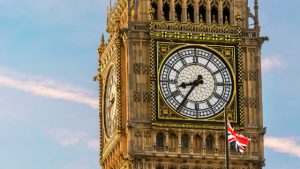
The much-loved BBC children’s series Horrible Histories found itself in the eye of the Brexit storm last week. Comedian Nish Kumar presented a special edition for 31st January, which put together a collection of favourite songs and sketches from past shows, all with some relevant European content, interspersed with his own commentary. Of course, Horrible Histories being, well, horrible, all of the material presented was irreverent, and needless to say, it was memorable and highly effective in educational terms, as would be expected by anyone familiar with the Horrible Histories brand.
Nevertheless, the programme triggered a negative backlash from some quarters. There were complaints from Brexiteers that it presented a pro-Remain agenda, and lacked the political impartiality which the BBC ought to show, whilst other voices argued that the overall message was “Anti-British”. There were also claims that had lapses in terms of historical accuracy and logical coherence, and one song in particular (“British Things”) came in for attack as it appeared to be promoting both the ideas that Britain had failed to produce anything truly original, and also that people, concepts and practices from elsewhere could never become truly British.
Clicking on BBC I player to see what all the fuss was about, and being greeted by William the Conqueror, leading a group of Norman knights dancing Gangnam style, it was a little hard to take the outrage seriously. Also, who could not melt at the original Horrible Histories team singing the Four Georges song as a boy band? Having said which, it is possible to see why allowing a comedian who has been such a prominent voice for the Remain cause to host the programme might not have been the wisest move in terms of neutrality, nor in regard to embracing a spirit of reconciliation as we collectively try to move on and heal the Brexit divide. Maybe British Things was an odd choice for Brexit day, as in its original context it was a legitimate critique of imperialism and the accompanying evils of slavery and economic exploitation, but transplanted into the Brexit special, the song could easily be interpreted as implying that all of those in favour of Brexit were apologists for the British Empire, and either ignorant or racist. Whilst we would not suggest that this was the intended message of the programme, with feelings still running high on both sides, there was perhaps a bit too much scope for misinterpretation.
On balance though, we would be inclined to agree with the perspective of the BBC, that the programme was meant to the light-hearted, and that the intended audience were capable of appreciating this. Moreover, one point which is powerfully made by the collage of sketches about “British history” featuring European protagonists, was that whatever future relationship emerges between the United Kingdom and the European Union, the British population are going to remain European. We are part of the European family and share a continental metaculture. It is actually powerful to think that most (if not all) of the songs and sketches spliced together in the Brexit programme were taken from earlier episodes simply focused on presenting history in a fun and engaging way. They dealt with European, and indeed global characters and events, because these were necessary in order to make sense of British history. Living on an island in a geographical sense does not mean that we live in cultural, social or economic isolation, and it is only learning about the wider picture that we can make sense of our context, as we are just one piece is a bigger jigsaw.
Going forward, the United Kingdom is going to remain part of Europe, and it is in everybody’s best interests for us to embrace this, and to negotiate a positive agreement with the EU. Furthermore, it makes no sense to see any celebration of European culture and events as an attack on Britishness. Constitutional law, and the political processes which move beneath its surface, have a role in shaping how we see our collective identity, and regardless of Brexit, part of our identity is as a European nation. That is not up for change or negotiation, and is nothing new or radical. It is no accident that whenever a list of Great Britons is drawn up, figures like Isambard Kingdom Brunel (son of a French asylum seeker and greatest engineer in British history) invariably feature. Whilst the significance of Brexit should never be underestimated, it is important to bear in mind that there are deeper realities, which cannot be changed by treaties or Acts of Parliament.
Related Articles
BBC in fresh impartiality row, as Brexit day sketches for children are compared to BNP for branding traditions un-British The Telegraph (2/2/20)


